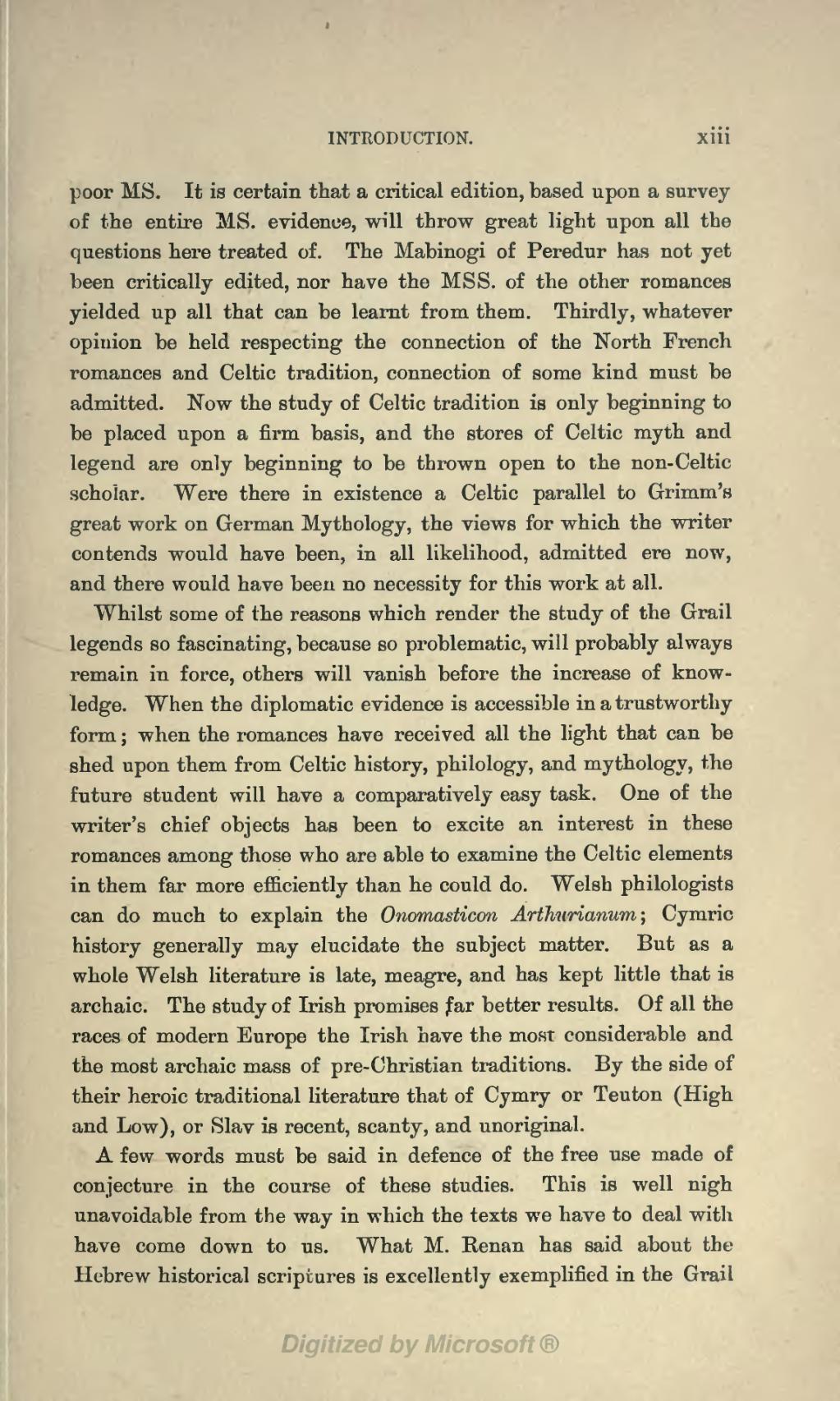poor MS. It is certain that a critical edition, based upon a survey of the entire MS. evidence, will throw great light upon all the questions here treated of. The Mabinogi of Peredur has not yet been critically edited, nor have the MSS. of the other romances yielded up all that can be learnt from them. Thirdly, whatever opinion be held respecting the connection of the North French romances and Celtic tradition, connection of some kind must be admitted. Now the study of Celtic tradition is only beginning to be placed upon a firm basis, and the stores of Celtic myth and legend are only beginning to be thrown open to the non-Celtic scholar. Were there in existence a Celtic parallel to Grimm's great work on German Mythology, the views for which the writer contends would have been, in all likelihood, admitted ere now, and there would have been no necessity for this work at all.
Whilst some of the reasons which render the study of the Grail legends so fascinating, because so problematic, will probably always remain in force, others will vanish before the increase of knowledge. When the diplomatic evidence is accessible in a trustworthy form; when the romances have received all the light that can be shed upon them from Celtic history, philology, and mythology, the future student will have a comparatively easy task. One of the writer's chief objects has been to excite an interest in these romances among those who are able to examine the Celtic elements in them far more efficiently than he could do. Welsh philologists can do much to explain the Onomasticon Arthurianum; Cymric history generally may elucidate the subject matter. But as a whole Welsh literature is late, meagre, and has kept little that is archaic. The study of Irish promises far better results. Of all the races of modern Europe the Irish have the most considerable and the most archaic mass of pre-Christian traditions. By the side of their heroic traditional literature that of Cymry or Teuton (High and Low), or Slav is recent, scanty, and unoriginal.
A few words must be said in defence of the free use made of conjecture in the course of these studies. This is well nigh unavoidable from the way in which the texts we have to deal with have come down to us. What M. Renan has said about the Hebrew historical scriptures is excellently exemplified in the Grail
